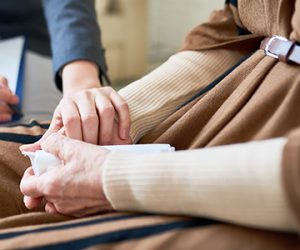
If you are in danger, please call 911.
If you need a secure, safe place to stay, please contact a shelter. If you are in the Rockford area, you can contact Remedies at 815-962-6102 or the Rockford Rescue Mission’s Women’s Crisis Center at 815-316-4198.
Bring any medication you might need and, if you are able, important documents like social security cards, orders of protection, IDs and birth certificates for your family. Children are welcome under certain ages at each location. At this time, no local domestic violence shelter accepts pets, but they may have agreements with businesses who can help with housing a pet while you get settled.
If you are not in the area, but live in Illinois or you are looking to relocate to Illinois, you may call Domestic Violence Helpline: 1-877-TO END DV or 1-877-863-6338 (Voice) or 1-877-863-6339 (TTY) to find services, shelter and support. The hotline is toll free, confidential, multilingual, and available 24-hours.
If you are without transportation, law enforcement can provide you with a ride to a safe location, like a shelter. It is your right under the Illinois Domestic Violence Act.

It’s NOT your fault.
We believe you.
We encourage you to call 911 and/or go to a hospital emergency room so that you can get the appropriate medical treatment.
It’s important that you don’t shower or change clothes before calling the police or going to the ER. However, if you have already done so, please go anyway and bring your clothing with you. Once at the hospital, they will call an advocate from Rockford Sexual Assault Counseling (RSAC), who will be with you in the emergency room and guide you through the process. This advocate does not work for law enforcement or the hospital – they are only there to help you.
If you are concerned or uncertain as to whether or not you should call police or go to the hospital, you can call RSAC directly at 815-636-9811 to speak with an advocate who will help you consider your options. Services from RSAC are free and any information you share with them is completely confidential.

- We encourage you to speak with an attorney to discuss your legal options and rights, such as custody, housing issues, separation and divorce. If you cannot afford a private attorney, please contact the Zeke Giorgi Legal Clinic at 815-962-9980 or Prairie State Legal Services at 815-965-2902.
- For help and support throughout the Order of Protection process, the Domestic Violence Assistance Center is available. It is located at 400 West State Street on the third floor of the old courthouse building, above traffic court. It is open during courthouse hours, Monday through Friday, 8 a.m. to 5 p.m. Once you enter the courthouse, you can follow purple signs to the elevator next to traffic court, up to the third floor. Free safety planning is available. Advocates from Remedies and the Winnebago County State’s Attorney’s Office are available to help you navigate through the court system, including the Order of Protection process. For more information, please call 815-516-2440.

- Code words: It is important to tell as many people as you feel comfortable talking to about the potential danger you may be in, including neighbors, co-workers, friends and family. Developing a plan to let them know you are in immediate danger may help. For instance, choosing a verbal or visual signal that you can communicate with them may alert them to contact police. Turning your porch light off and on, opening blinds in one room, texting or speaking a phrase are all examples. The important thing is to choose something you both understand and can easily do or say if you need help.
- Safety planning with children: It is important to safety plan with your children and communicate to them that it is not their responsibility to protect you. They should seek safety immediately if there is a threat. Talk with them about safe places and spaces within your home and neighborhood they can go to be safe. Help them identify safe adults they can reach out to for help. Tell them the importance of calling 911, and give them permission to do so – this should always be the first action step in a dangerous situation.
- Important Documents: If you are considering leaving or find that you need to leave, be prepared by having your important documents in a safe place and somewhere you can easily access. Either take originals or copies of the following for yourself AND your children: driver’s license, birth certificate, social security card, financial and banking information, insurance cards, school records, medical records, lease/rental agreements, vehicle titles, immigration documents, passports, custody papers, medications, orders of protection, and any other documents you need to establish new residency and prove your identity. .
- Putting Aside Money: If it’s safe for you, you may want to consider putting away a little bit of money over time, in the event you need to leave in a hurry. Ideally, the person you are leaving will not be able to gain access to these funds before you can.
- Crisis Nursery: If you need safe, free childcare for up to 72 hours, you may be able to drop your child off at Motherhouse Crisis Nursery. Motherhouse will provide safe childcare for children ages 0-6. Please call them at 815-962-4858.
- Schools: If you decide to enter a shelter, staff can assist in getting busing set up for your children to the school they are currently enrolled in. In addition, it is worthwhile to consider whether your school or your children’s school should be protected addresses on an order of protection. You should also consider scheduling and accessibility during school hours in your safety planning.
- Housing: Laws, such as the Safe Homes Act, provide important rights, such as leaving a lease and changing locks. We encourage you to speak with an attorney to discuss your legal options and rights. If you cannot afford a private attorney, please contact the Zeke Giorgi Legal Clinic at 815-962-9980 or Prairie State Legal Services at 815-965-2902.
- Human Services Department: The City of Rockford Human Services Department can assist persons fleeing domestic violence – they are prioritized for assistance for homeless/housing assistance programs. Community Action programs can also assist with establishing utilities at a new address and providing other forms of financial assistance that can help you and your children, such as obtaining new documentation, obtaining food and medicine and meeting other emergency needs. Please call 844-710-6919 for more information.
- Cell phones: Some cell phone providers will allow you to change your telephone number at no charge if you are fleeing a domestic violence situation. You should contact your provider to learn more about your options. It is important to also be aware that your location may be tracked through your phone and on social media, if you post from your phone. Please consider this as you develop your safety plan. If you do not have access to a cell phone and would like one in order to contact 911 in an emergency, call Remedies Renewing Lives. They may be able to provide one to you.
- Orders of Protection: An Order of Protection is sometimes called a restraining order. Many protections are offered through an order of protection for you, your child and pets. These protections include prohibiting someone from contacting, approaching and following you. They may also address possession of property and a home, as well as temporary custody issues and can allow for the removal of firearms. For help and support throughout the Order of Protection process, the Domestic Violence Assistance Center is available. It is located on the third floor of the old courthouse building, located at 400 West State St, above traffic court. It is open during courthouse hours, Monday through Friday, 8 a.m. to 5 p.m. Once you enter the courthouse, you can follow purple signs to the elevator next to traffic court, up to the third floor. Free safety planning is available. Advocates from Remedies and the Winnebago County State’s Attorney’s Office are available to help you navigate through the court system, including the Order of Protection process. For more information, please call 815-516-2440.
- Kids Place: Kids Place is also located at the courthouse and the Criminal Justice Center, and it provides free childcare to children ages 2-12 while you are in the courthouse conducting court business. For more information, please call 815-516-2479.

- Sign: Often people in unhealthy relationships begin to isolate themselves from friends and family. They may behave in ways that seem uncharacteristic. You may notice them being very concerned about checking in with their partner, letting them know their whereabouts and not making them angry. If they are in a physically abusive relationship, you may notice unexplained injuries, bruises in various stages of healing and wearing clothing not appropriate for the temperature in an effort to hide injuries.
- What To Do or Say: It is important to remain in contact with your loved one, as they need you now, more than ever, even if they are not able to express this. It is not uncommon for them to protect their partner or take blame for the situation, and they may become very defensive. Attacking their partner, calling them names and demanding your loved one leave the relationship is not effective and will often only alienate them. Be kind. Make sure they know you love them and are there for them if they ever need you, without judgement. Consider saying things like:
- I’m afraid for your safety.
- This is not your fault.
- I believe you.
- You deserve to be safe and happy.
- You do not deserve to be treated this way.
- You have options, and I am here to help.
- How can I help you?
- What do you need?
- Situations like this escalate and people in your situation have been killed.
- I am afraid for your children.
Seeing a loved one go through this is very stressful, and it is important for you to seek out someone to talk to and make sure you are supported as well. Talk to someone you trust, or even a counselor, and make sure you are taking care of yourself. DO NOT ever confront the abuser yourself – be mindful of your own safety. Leaving a domestic violence relationship is a process, not an event. It is common for someone to return to his or her abuser many times before leaving for good. Accept that this could happen, and that it often takes many times trying to leave before they are able to actually leave. Do not become angry with your loved one. Support them. Make sure they know you are always there, and take good care of yourself.


